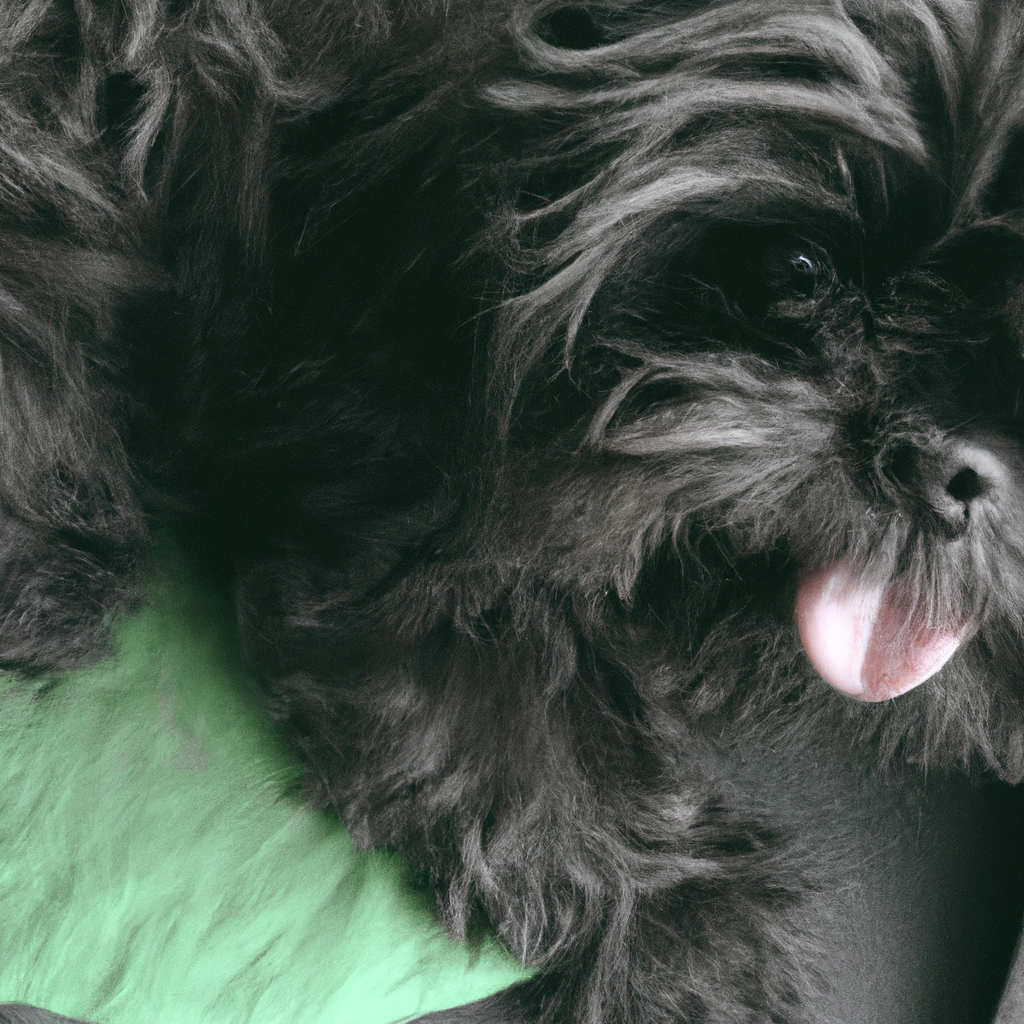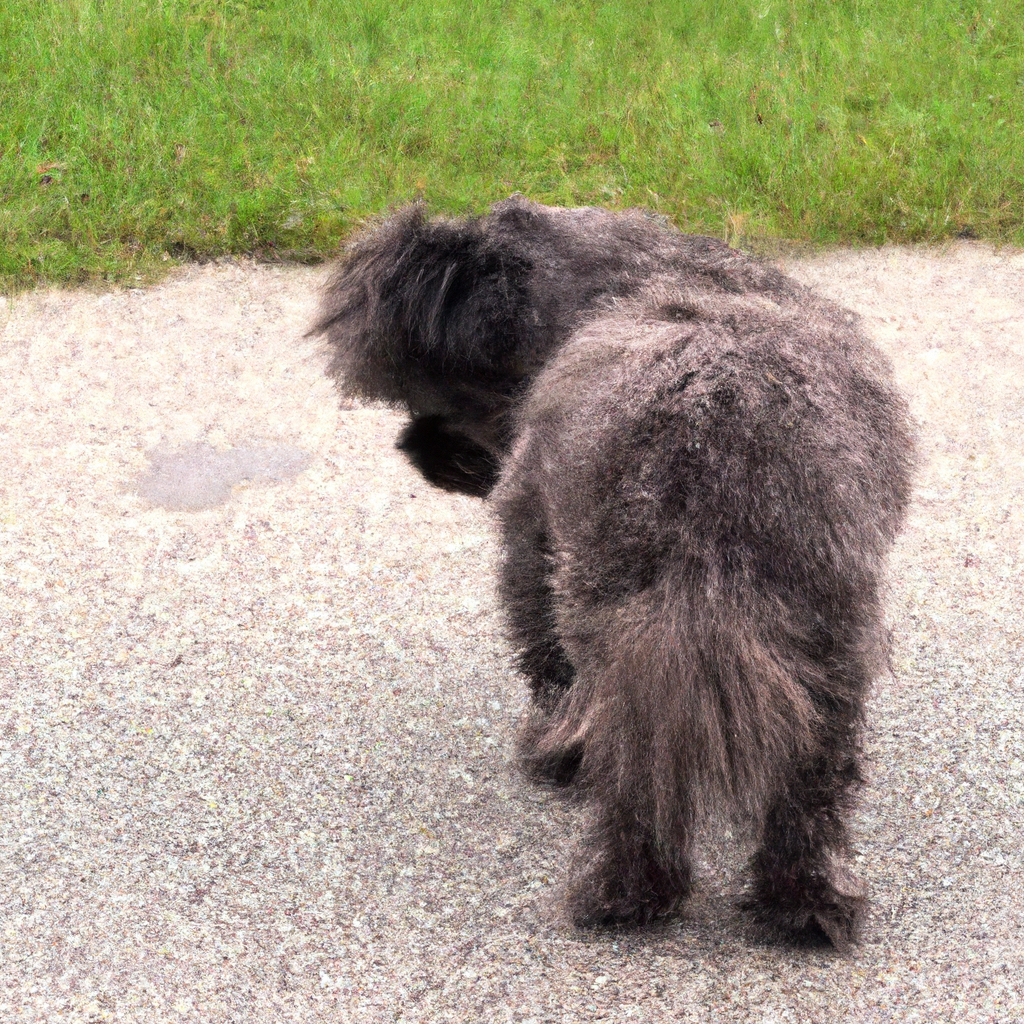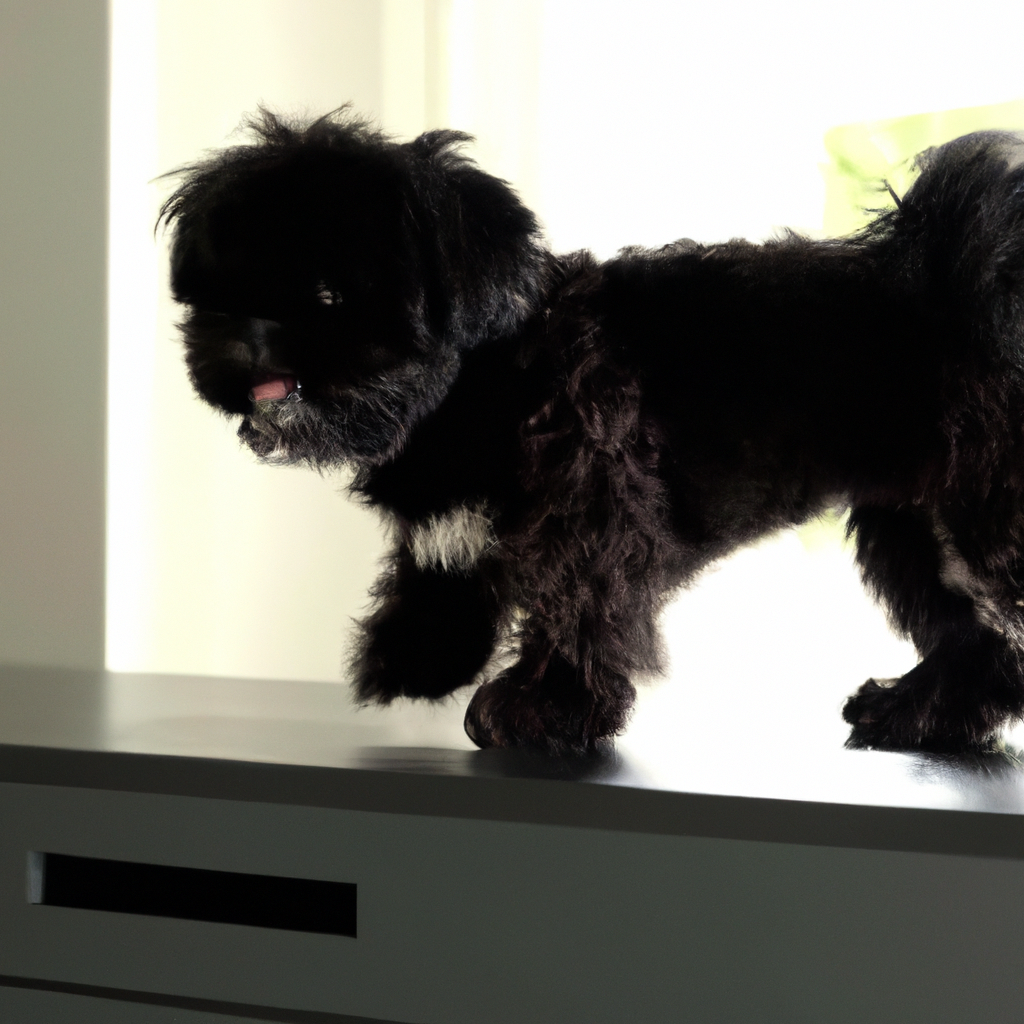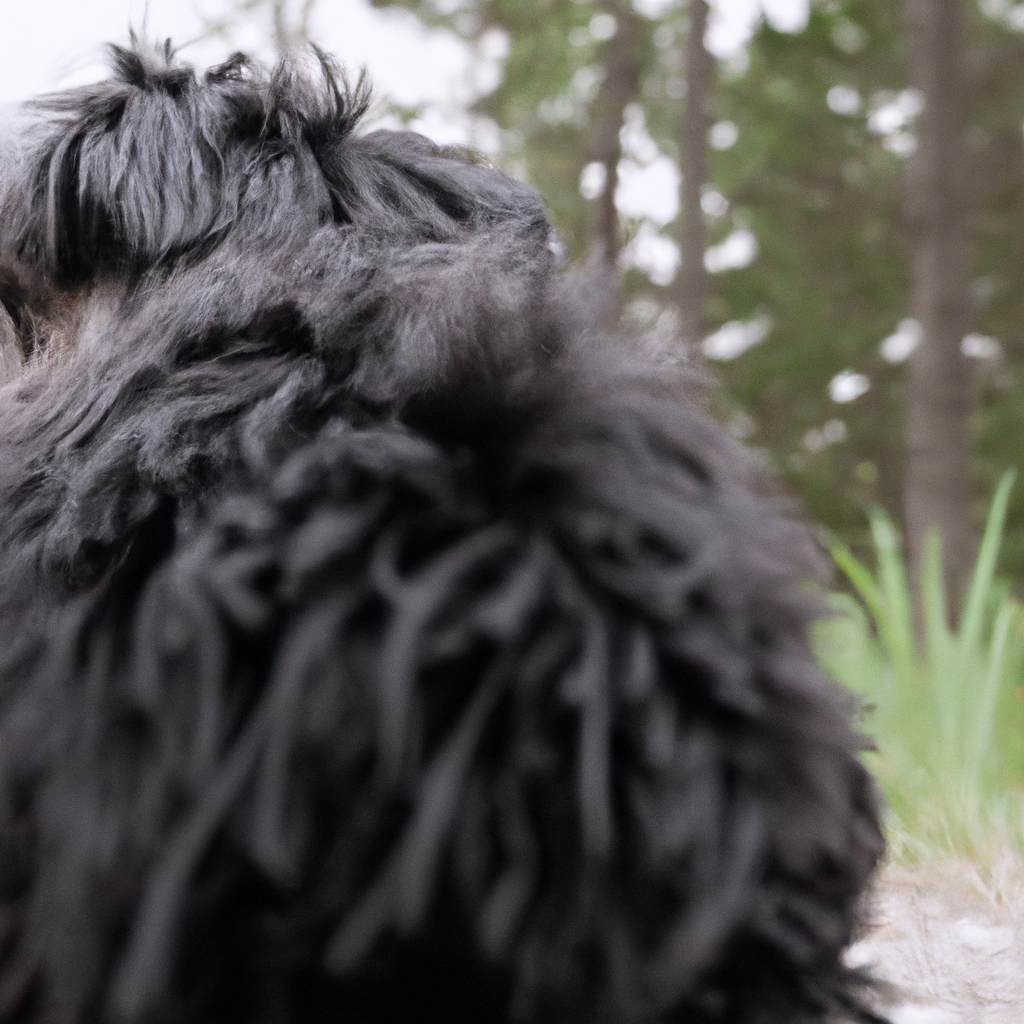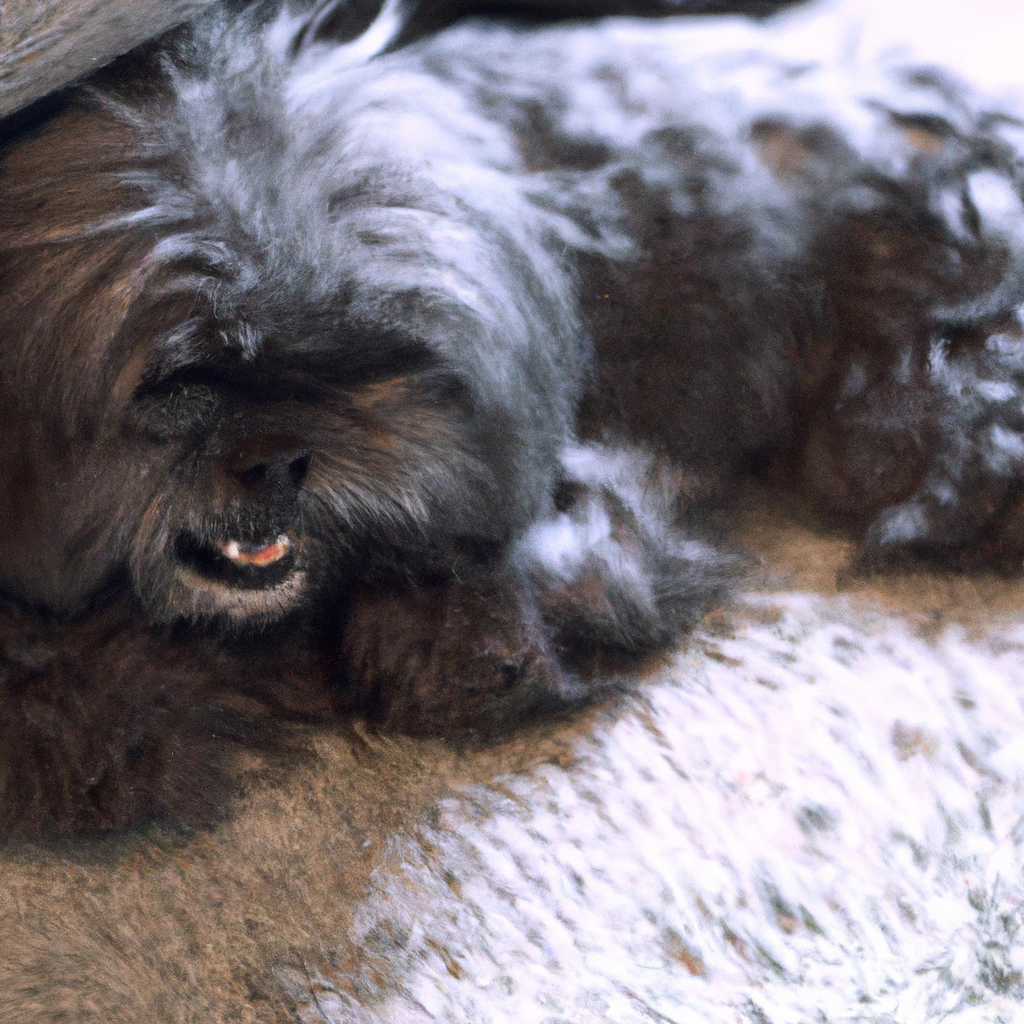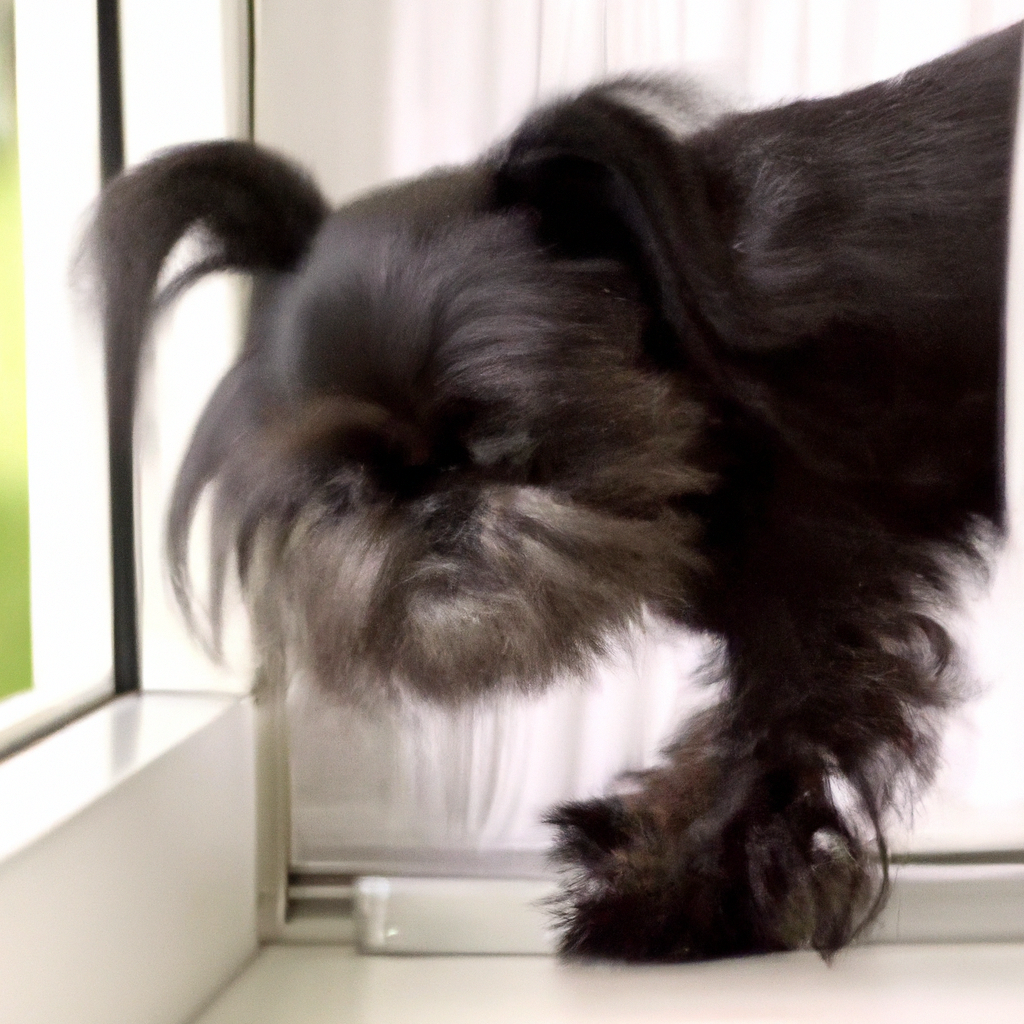Preventing behavioral problems in Affenpinschers involves understanding and addressing the unique temperament and needs of this small, yet bold and active breed. Affenpinschers, also known as “Monkey Terriers,” are known for their distinctive appearance and lively personality. However, like any breed, they can develop behavioral issues if not properly trained and socialized. These problems can range from excessive barking, aggression, separation anxiety, to more complex issues like obsessive-compulsive behaviors. Prevention strategies include early socialization, consistent training, mental stimulation, and regular exercise. Understanding the breed’s characteristics and potential behavioral issues is crucial for any Affenpinscher owner or potential owner.
Understanding and Preventing Aggression in Affenpinschers
Affenpinschers, often referred to as “Monkey Terriers” due to their distinct primate-like appearance, are small but mighty dogs known for their playful and adventurous spirit. However, like any breed, they can sometimes exhibit behavioral problems, particularly aggression. Understanding and preventing aggression in Affenpinschers is crucial to ensure a harmonious relationship between you and your furry friend.
Affenpinschers are naturally protective and territorial, which can sometimes manifest as aggression. This is not necessarily a sign of a ‘bad’ dog, but rather a trait that has been ingrained in them for centuries. It’s important to remember that aggression is often a response to a perceived threat, and in the case of Affenpinschers, this could be anything from a stranger approaching their favorite human to another dog encroaching on their territory.
Understanding the root cause of your Affenpinscher’s aggression is the first step in preventing it. Is it fear-based, territorial, or perhaps related to a medical issue? Once you’ve identified the cause, you can begin to address it. For instance, if your Affenpinscher is showing signs of fear-based aggression, it’s essential to gradually expose them to the thing they’re afraid of in a controlled and positive way. This process, known as desensitization, can help your dog become more comfortable with the source of their fear over time.
On the other hand, if your Affenpinscher’s aggression is territorial, it’s crucial to establish boundaries and teach them that they don’t need to protect everything. This can be achieved through consistent training and positive reinforcement. Reward your Affenpinscher when they behave well in situations they would typically react aggressively to. This will help them understand that there’s no need to be protective in these situations.
In some cases, aggression in Affenpinschers can be linked to medical issues. Pain or discomfort can make even the most docile dog lash out. Regular vet check-ups can help identify any underlying health problems that may be contributing to your dog’s aggression. If a medical issue is identified, treating it could significantly reduce, if not eliminate, the aggressive behavior.
Socialization is another key factor in preventing aggression in Affenpinschers. These dogs are naturally sociable and thrive on interaction with both humans and other dogs. Regular playdates with other dogs, trips to the dog park, and even doggy daycare can provide valuable socialization opportunities. This exposure can help your Affenpinscher learn how to interact appropriately with others, reducing the likelihood of aggressive behavior.
Training is also a vital part of preventing aggression in Affenpinschers. Obedience training from a young age can help establish you as the pack leader, teaching your dog to respect your commands. This can prevent aggressive behavior by ensuring your dog understands their place in the pack and respects the rules.
In conclusion, preventing aggression in Affenpinschers involves understanding the root cause of the behavior, providing appropriate training, ensuring regular socialization, and maintaining good health. Remember, every dog is unique, and what works for one Affenpinscher may not work for another. It’s important to be patient, consistent, and positive in your approach. With time and effort, you can help your Affenpinscher become a well-behaved and happy member of your family.
Effective Training Techniques to Curb Affenpinscher Behavioral Issues
Affenpinschers, often referred to as “Monkey Terriers” due to their distinct primate-like appearance, are small but mighty dogs known for their playful and adventurous spirit. However, like any breed, they can develop behavioral problems if not properly trained. Fortunately, there are effective training techniques that can help curb these issues and ensure your Affenpinscher grows into a well-behaved and sociable pet.
Firstly, it’s important to understand that Affenpinschers are naturally curious and energetic. They love to explore their surroundings and can sometimes get into mischief if left unsupervised. Therefore, one of the most effective ways to prevent behavioral problems is to provide them with plenty of mental and physical stimulation. This can be achieved through regular walks, playtime, and interactive toys that challenge their problem-solving skills. A bored Affenpinscher is a mischievous one, so keeping them engaged and active is key.
Another crucial aspect of training Affenpinschers is consistency. These dogs are intelligent and quick learners, but they also have a stubborn streak. They respond best to training methods that are consistent and clear. This means setting rules and sticking to them, and rewarding good behavior while discouraging bad behavior. For instance, if you don’t want your Affenpinscher on the furniture, make sure everyone in the household enforces this rule. Mixed messages can confuse your pet and lead to behavioral problems.
Socialization is also a vital part of preventing behavioral issues in Affenpinschers. These dogs can be somewhat territorial and wary of strangers, which can lead to aggressive behavior if not addressed. To prevent this, it’s important to expose your Affenpinscher to a variety of people, places, and situations from a young age. This will help them become more comfortable in different environments and reduce their tendency to react aggressively.
Positive reinforcement is another effective training technique for Affenpinschers. This breed responds well to rewards such as treats, praise, and playtime. When your Affenpinscher behaves well, make sure to reward them immediately so they associate the good behavior with the reward. This will encourage them to repeat the behavior in the future. On the other hand, punishment or negative reinforcement can often lead to fear and anxiety, which can exacerbate behavioral problems.
Lastly, patience is key when training an Affenpinscher. These dogs are known for their independent and sometimes stubborn nature, which can make training a bit of a challenge. However, with patience and persistence, you can help your Affenpinscher understand what is expected of them. Remember, training is a process and it takes time. Don’t get discouraged if your Affenpinscher doesn’t catch on right away.
In conclusion, preventing behavioral problems in Affenpinschers involves a combination of mental and physical stimulation, consistency, socialization, positive reinforcement, and patience. By understanding your Affenpinscher’s natural tendencies and using these effective training techniques, you can help your pet become a well-behaved and sociable member of your family. After all, a well-trained Affenpinscher is a happy Affenpinscher.
Preventing Separation Anxiety in Affenpinschers
Affenpinschers, often referred to as “Monkey Terriers” due to their distinct primate-like appearance, are small but mighty dogs known for their playful and adventurous spirit. However, like many other breeds, they can be prone to certain behavioral issues, including separation anxiety. This is a condition where a dog becomes extremely anxious and distressed when left alone. It can manifest in various ways, such as excessive barking, destructive behavior, and even self-harm in severe cases. Fortunately, there are several strategies that can be employed to prevent or manage this condition in Affenpinschers.
Firstly, it’s important to understand that Affenpinschers are social creatures that thrive on companionship. They form strong bonds with their human families and can become distressed when separated from them. Therefore, it’s crucial to gradually acclimate your Affenpinscher to being alone. This can be achieved by leaving them alone for short periods initially, and then gradually increasing the duration over time. This helps them understand that you will always return, reducing their anxiety.
Another effective strategy is to provide your Affenpinscher with plenty of mental and physical stimulation. This breed is known for its high energy levels and intelligence, so they require regular exercise and mental challenges to keep them occupied. This can be in the form of walks, playtime, or puzzle toys that stimulate their minds. A tired Affenpinscher is a happy Affenpinscher, and they are less likely to exhibit signs of separation anxiety when they are mentally and physically satisfied.
Training is also a key component in preventing separation anxiety in Affenpinschers. Obedience training from a young age can help establish a strong bond between you and your pet, and it can also teach them to be more independent. Crate training can be particularly beneficial, as it provides your Affenpinscher with a safe and secure space where they can retreat when they are feeling anxious. However, it’s important to ensure that the crate is never used as a form of punishment, as this can create negative associations and exacerbate the problem.
In addition to these strategies, it’s also worth considering the use of calming aids if your Affenpinscher is particularly prone to separation anxiety. These can include things like calming collars, diffusers, or even certain types of music that have been specifically designed to soothe anxious dogs. However, it’s always best to consult with a vet or a professional dog behaviorist before introducing any new treatments.
Lastly, it’s important to remember that patience and consistency are key when dealing with separation anxiety in Affenpinschers. It can take time for your pet to adjust to being alone, and there may be setbacks along the way. However, with the right approach and plenty of love and understanding, it’s entirely possible to prevent or manage this condition effectively.
In conclusion, while Affenpinschers may be prone to separation anxiety, there are several strategies that can be employed to prevent or manage this condition. By gradually acclimating your pet to being alone, providing plenty of mental and physical stimulation, implementing effective training techniques, and potentially using calming aids, you can help ensure that your Affenpinscher remains happy and healthy, even when you’re not around.
How to Stop Excessive Barking in Affenpinschers
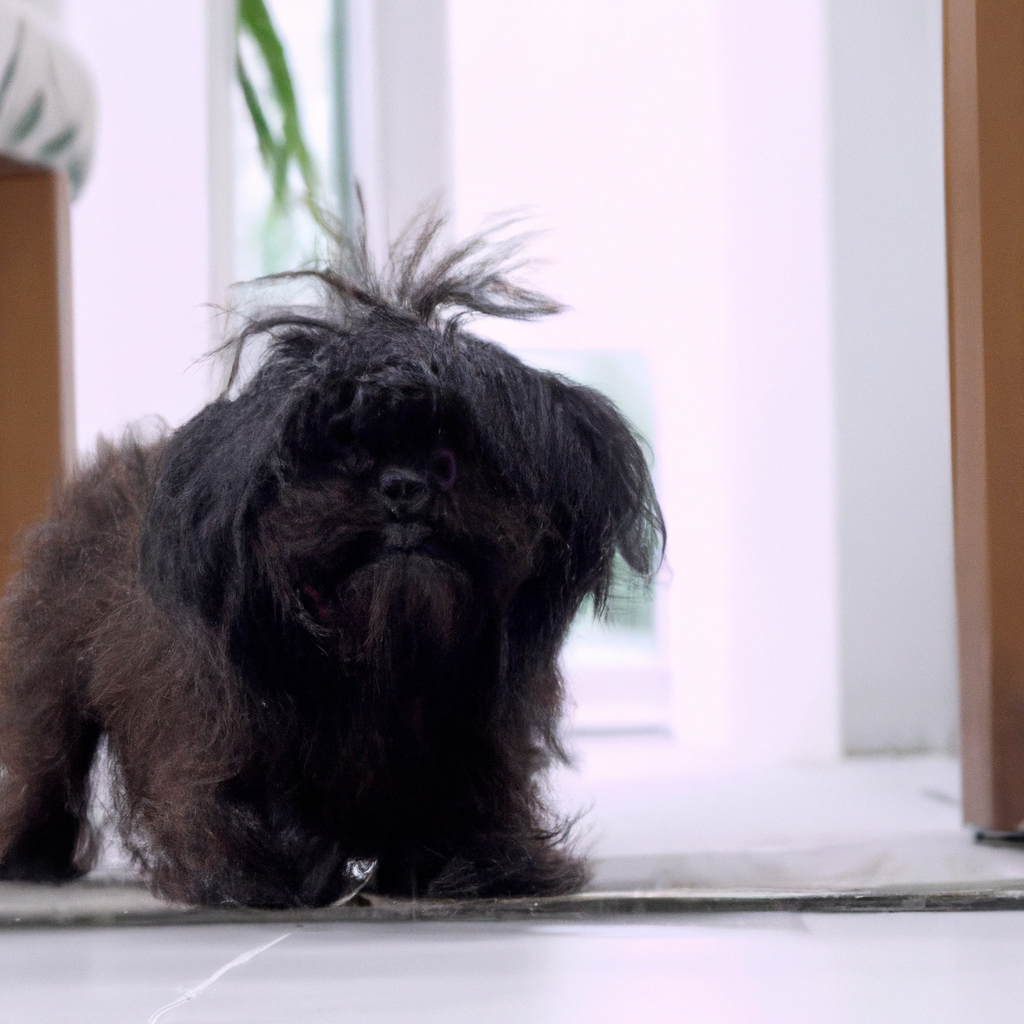
Affenpinschers, also known as “Monkey Terriers,” are small but mighty dogs known for their distinctive appearance and lively personality. While they are generally well-behaved, they can sometimes develop behavioral problems, such as excessive barking. This can be a nuisance, but with the right approach, it can be managed effectively.
Excessive barking in Affenpinschers, like in any other breed, is often a way for the dog to communicate. It could be a sign of boredom, anxiety, fear, or a response to certain stimuli in their environment. Understanding the root cause of the barking is the first step in addressing the issue.
If your Affenpinscher is barking out of boredom, it’s crucial to ensure they are getting enough physical and mental stimulation. Regular walks, playtime, and training sessions can help keep them engaged and burn off excess energy. Puzzle toys and interactive games can also be beneficial in keeping their minds sharp and occupied.
On the other hand, if anxiety or fear is causing the excessive barking, it’s important to identify the triggers and work on desensitizing your dog to them. This process involves gradually exposing your dog to the trigger in a controlled way, rewarding them for remaining calm, and slowly increasing the intensity or duration of the exposure. It’s a slow process, but with patience and consistency, it can be very effective.
In some cases, the barking may be a response to certain stimuli in the environment, such as other dogs, people passing by the window, or noises. In these situations, managing your dog’s environment can help reduce the barking. This could involve closing the blinds to block the view of the street, using white noise machines to mask outside noises, or creating a quiet, safe space for your dog to retreat to when they feel overwhelmed.
Training is another key component in managing excessive barking. Teaching your Affenpinscher commands such as “quiet” or “enough” can be very helpful. Start by saying the command when your dog is barking, and as soon as they stop, reward them with a treat or praise. Over time, they will start to associate the command with stopping barking and the reward that follows.
It’s also important to remember that while barking can be frustrating, it’s a natural behavior for dogs. Punishing your dog for barking can often make the problem worse, as it can increase their anxiety or confusion. Instead, focus on positive reinforcement and reward-based training methods.
Lastly, if you’re struggling to manage your Affenpinscher’s barking, don’t hesitate to seek professional help. A professional dog trainer or behaviorist can provide valuable insight and guidance, and can help you develop a tailored training plan to address the issue.
In conclusion, preventing behavioral problems in Affenpinschers, such as excessive barking, involves understanding the root cause of the behavior, providing adequate physical and mental stimulation, managing the environment, and using positive, reward-based training methods. With patience, consistency, and the right approach, you can help your Affenpinscher become a well-behaved and happy member of your family.
Preventing Destructive Chewing in Affenpinschers
Affenpinschers, often referred to as “Monkey Terriers” due to their distinct primate-like appearance, are small but energetic dogs known for their playful and sometimes mischievous behavior. While their spirited nature can be endearing, it can also lead to behavioral problems if not properly managed. One such issue that Affenpinscher owners often grapple with is destructive chewing. However, with the right approach, this problem can be prevented, ensuring a harmonious coexistence between you and your furry friend.
Destructive chewing in Affenpinschers, like in many other dog breeds, is often a result of boredom, anxiety, or a lack of mental stimulation. These dogs are intelligent and require regular mental and physical exercise to keep them content. Without this, they may resort to chewing on furniture, shoes, or other household items as a way to entertain themselves or relieve stress.
To prevent this behavior, it’s crucial to provide your Affenpinscher with plenty of opportunities for physical exercise. Regular walks, playtime in the yard, or even a game of fetch in the living room can help burn off excess energy and reduce the likelihood of destructive chewing. Remember, a tired Affenpinscher is a well-behaved Affenpinscher.
In addition to physical exercise, mental stimulation is equally important. Puzzle toys, training sessions, and interactive games can keep your Affenpinscher’s mind sharp and engaged. This not only helps to prevent destructive chewing but also contributes to their overall well-being and happiness.
Another effective strategy is to provide appropriate chew toys for your Affenpinscher. These can serve as a safe and acceptable outlet for their natural chewing instinct. When choosing chew toys, opt for durable options that can withstand your dog’s strong jaws and sharp teeth. It’s also a good idea to have a variety of toys on hand to keep your dog interested and engaged.
Training also plays a crucial role in preventing destructive chewing. Teaching your Affenpinscher the “leave it” command can be particularly useful. This command instructs your dog to immediately stop what they’re doing and can be used to redirect their attention away from inappropriate chewing targets.
However, it’s important to remember that training should always be a positive experience for your dog. Rather than punishing them for chewing on inappropriate items, reward them for choosing to chew on their toys instead. This positive reinforcement will help your dog understand what is expected of them and encourage good behavior.
In some cases, destructive chewing may be a sign of separation anxiety. If your Affenpinscher only chews when left alone, it’s worth consulting with a veterinarian or a professional dog behaviorist. They can provide guidance and treatment options to help manage this condition.
In conclusion, preventing destructive chewing in Affenpinschers involves a combination of regular exercise, mental stimulation, appropriate chew toys, and positive reinforcement training. By understanding and addressing the underlying causes of this behavior, you can help your Affenpinscher lead a happier, healthier life. Remember, every dog is unique and what works for one might not work for another. Therefore, it’s important to be patient and persistent in your efforts, and don’t hesitate to seek professional help if needed.
Addressing and Preventing Food Aggression in Affenpinschers
Affenpinschers, also known as “Monkey Terriers,” are small but mighty dogs known for their distinctive appearance and lively personality. However, like any breed, they can sometimes exhibit behavioral issues, one of which is food aggression. This is a serious concern that can lead to dangerous situations if not addressed promptly and correctly.
Food aggression in dogs, including Affenpinschers, is a form of resource guarding where a dog becomes overly protective of its food. It can manifest in various ways, such as growling, snapping, or even biting when someone approaches their food. This behavior is not a reflection of their character but is often driven by fear or anxiety.
Preventing food aggression in Affenpinschers begins with understanding the root cause of the behavior. It’s important to remember that dogs, at their core, are instinctual creatures. In the wild, food is a scarce resource, and protecting it is a matter of survival. While your Affenpinscher isn’t fending off predators in the wild, these instincts can still kick in, leading to food aggression.
To prevent food aggression, it’s crucial to start training your Affenpinscher from a young age. Puppies are naturally curious and more adaptable to new experiences, making it the perfect time to introduce good eating habits. One effective method is hand-feeding. This practice not only helps to build trust between you and your dog but also allows your Affenpinscher to associate your presence with food positively.
Gradually, you can start adding in more steps like touching or moving the bowl while your dog is eating. Remember to reward your dog for remaining calm during these exercises. This process, known as desensitization, can help reduce your dog’s anxiety around meal times.
Another strategy is to establish a consistent feeding routine. Dogs thrive on routine, and knowing exactly when their next meal will come can alleviate the need to guard their food. It’s also beneficial to provide a quiet, low-traffic area for your dog to eat. This can help reduce potential distractions or perceived threats, further minimizing food aggression.
While these preventative measures can be effective, it’s important to note that every dog is unique, and what works for one might not work for another. If your Affenpinscher continues to show signs of food aggression despite your best efforts, it may be time to consult with a professional. A certified dog behaviorist can provide personalized strategies and guidance to address your dog’s specific needs.
In conclusion, preventing food aggression in Affenpinschers is a multifaceted process that requires patience, consistency, and understanding. By addressing this behavior early on and implementing preventative measures, you can help ensure that meal times are a positive experience for both you and your Affenpinscher. Remember, the goal is not to punish your dog for their instincts but to help them feel safe and secure in their home environment. With time and dedication, your Affenpinscher can learn to eat calmly and peacefully, making meal times a joy rather than a source of stress.
Preventing Territorial Behavior in Affenpinschers
Affenpinschers, often referred to as “Monkey Terriers” due to their distinct primate-like appearance, are small but incredibly spirited dogs. They are known for their playful and adventurous nature, but they can also exhibit certain behavioral issues, such as territorial behavior. This can manifest in various ways, including excessive barking, aggression, or even destructive behavior. However, with the right approach, these issues can be prevented and managed effectively.
Territorial behavior in Affenpinschers, like in many other breeds, is often a result of their instinctive need to protect their home and their loved ones. This is not necessarily a negative trait, as it can make them excellent watchdogs. However, when this behavior becomes excessive, it can lead to problems. For instance, your Affenpinscher might start barking incessantly at the slightest noise or show aggression towards visitors.
Preventing territorial behavior in Affenpinschers begins with understanding their needs and providing them with a suitable environment. These dogs are energetic and require regular exercise to keep them physically and mentally stimulated. A bored Affenpinscher is more likely to exhibit problematic behavior, so make sure your pet has plenty of toys and opportunities for play. Regular walks and play sessions can help burn off excess energy and reduce the likelihood of territorial behavior.
Socialization is another crucial aspect of preventing territorial behavior in Affenpinschers. Exposing your pet to different environments, people, and other animals from a young age can help them become more comfortable in various situations. This can significantly reduce their tendency to become overly protective or aggressive.
Training is also a vital part of managing and preventing territorial behavior. Affenpinschers are intelligent dogs that respond well to positive reinforcement training methods. Rewarding your pet for good behavior, such as not barking at a visitor, can help them understand what is expected of them. It’s also important to establish yourself as the pack leader. This doesn’t mean being harsh or domineering, but rather showing your pet that you are in control and they can trust you to protect them. This can help reduce their need to take on this role themselves.
While training and socialization can go a long way in preventing territorial behavior, it’s also important to consider your pet’s overall health. Certain health issues, such as pain or discomfort, can make your Affenpinscher more likely to exhibit problematic behavior. Regular vet check-ups can help ensure that your pet is in good health and not acting out due to underlying issues.
In conclusion, preventing territorial behavior in Affenpinschers involves a combination of regular exercise, socialization, training, and maintaining good health. It’s important to remember that every dog is unique and what works for one might not work for another. Therefore, it’s crucial to understand your Affenpinscher’s individual needs and personality. With patience, consistency, and a lot of love, you can help your Affenpinscher become a well-behaved and happy member of your family.
How to Handle Affenpinscher’s Stubbornness and Prevent Behavioral Problems
Affenpinschers, affectionately known as “Monkey Dogs,” are small but mighty creatures. They are known for their distinctive appearance and their lively, adventurous spirit. However, like many breeds, they can sometimes exhibit stubbornness, which can lead to behavioral problems if not properly managed.
Affenpinschers are intelligent and independent, traits that can sometimes translate into stubbornness. This stubbornness is not a sign of disobedience or lack of affection; rather, it’s a testament to their strong-willed nature. Understanding this is the first step in preventing behavioral problems.
One of the most effective ways to handle an Affenpinscher’s stubbornness is through consistent, positive reinforcement training. This breed responds well to rewards, so be sure to have a stash of treats on hand. When your Affenpinscher follows a command or behaves well, reward them immediately. This will help them associate good behavior with positive outcomes.
However, it’s important to remember that Affenpinschers, like all dogs, have their own personalities and temperaments. What works for one may not work for another. Therefore, it’s crucial to be patient and flexible in your training approach. If a particular method isn’t working, don’t be afraid to try something new.
Socialization is another key aspect of preventing behavioral problems in Affenpinschers. These dogs are naturally sociable and curious, so exposing them to a variety of people, places, and situations can help curb any potential stubbornness. Regular walks in the park, playdates with other dogs, and trips to pet-friendly stores can all provide valuable socialization experiences.
While socialization and training are important, it’s also crucial to provide your Affenpinscher with plenty of mental and physical stimulation. Boredom can often lead to stubbornness and other behavioral issues. Regular exercise, interactive toys, and puzzle games can all help keep your Affenpinscher engaged and content.
It’s also worth noting that Affenpinschers are known for their loyalty and affection towards their owners. Building a strong, loving relationship with your dog can go a long way in preventing behavioral problems. Spend quality time with your Affenpinscher, show them affection, and make them feel secure and loved. This will not only strengthen your bond but also make your dog more willing to please you, reducing their stubborn tendencies.
Lastly, remember that consistency is key. Affenpinschers, like all dogs, thrive on routine. Try to keep their feeding, exercise, and training schedules as consistent as possible. This will help them understand what is expected of them and reduce any potential confusion or anxiety, which can often lead to stubbornness.
In conclusion, while Affenpinschers can sometimes be stubborn, this trait can be managed with the right approach. By understanding their nature, providing consistent, positive reinforcement training, socializing them regularly, keeping them mentally and physically stimulated, building a strong bond with them, and maintaining a consistent routine, you can prevent behavioral problems and enjoy a happy, healthy relationship with your Affenpinscher. Remember, every dog is unique, so be patient, flexible, and understanding in your approach.In conclusion, preventing behavioral problems in Affenpinschers involves consistent training from a young age, socialization with other animals and people, mental stimulation, and regular exercise. Positive reinforcement techniques work best for this breed. Any signs of behavioral issues should be addressed immediately with the help of a professional to ensure the dog’s well-being and to maintain a healthy human-dog relationship.
